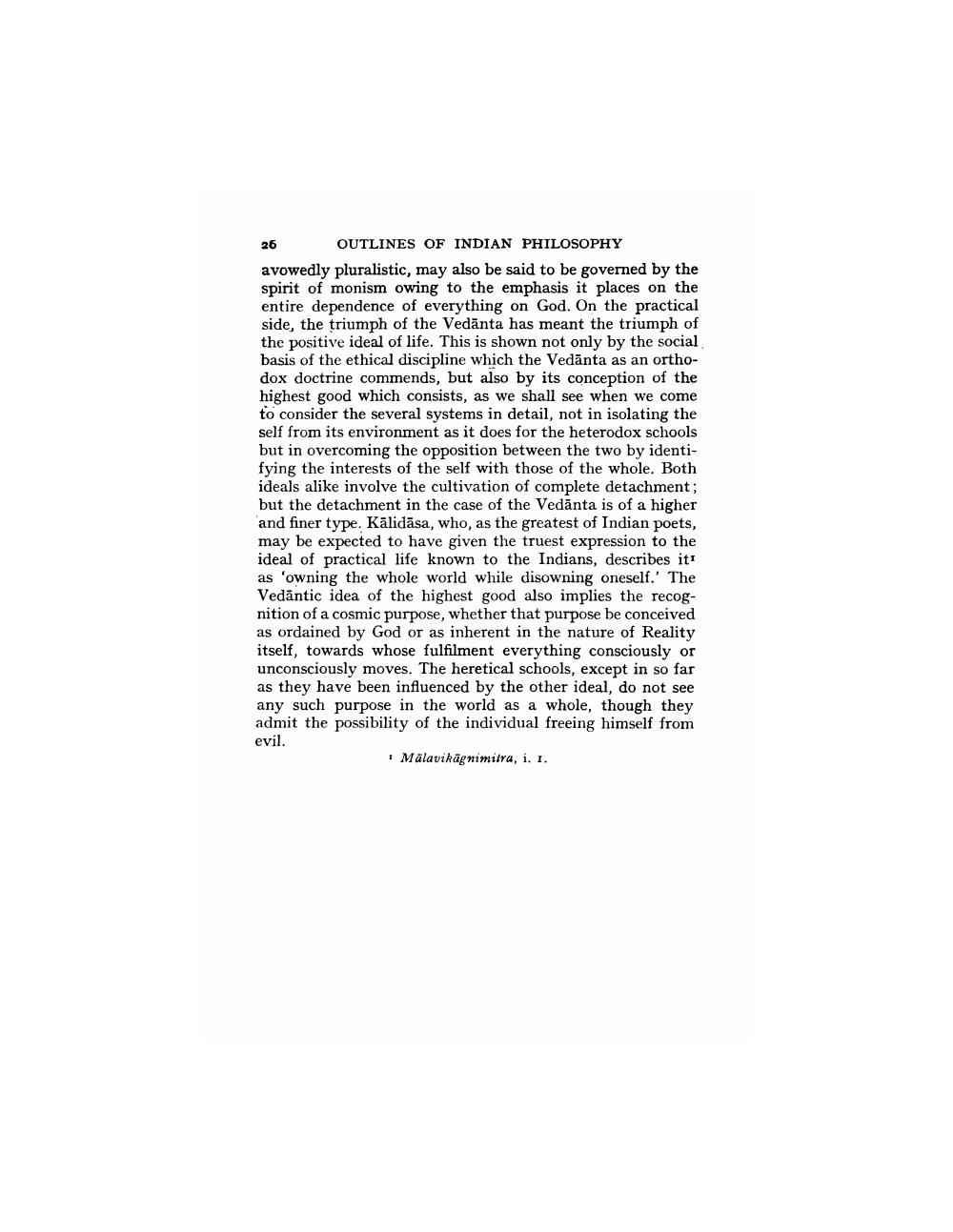________________
OUTLINES OF INDIAN PHILOSOPHY avowedly pluralistic, may also be said to be governed by the spirit of monism owing to the emphasis it places on the entire dependence of everything on God. On the practical side, the triumph of the Vedānta has meant the triumph of the positive ideal of life. This is shown not only by the social basis of the ethical discipline which the Vedānta as an orthodox doctrine commends, but also by its conception of the highest good which consists, as we shall see when we come to consider the several systems in detail, not in isolating the self from its environment as it does for the heterodox schools but in overcoming the opposition between the two by identifying the interests of the self with those of the whole. Both ideals alike involve the cultivation of complete detachment; but the detachment in the case of the Vedānta is of a higher and finer type. Kālidāsa, who, as the greatest of Indian poets, may be expected to have given the truest expression to the ideal of practical life known to the Indians, describes it as 'owning the whole world while disowning oneself.' The Vedāntic idea of the highest good also implies the recognition of a cosmic purpose, whether that purpose be conceived as ordained by God or as inherent in the nature of Reality itself, towards whose fulfilment everything consciously or unconsciously moves. The heretical schools, except in so far as they have been influenced by the other ideal, do not see any such purpose in the world as a whole, though they admit the possibility of the individual freeing himself from evil.
• Mälavikāgnimitra, i. 1.




